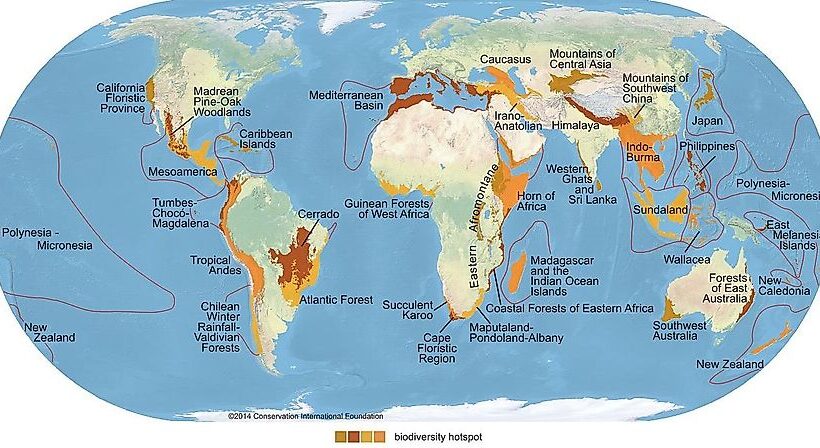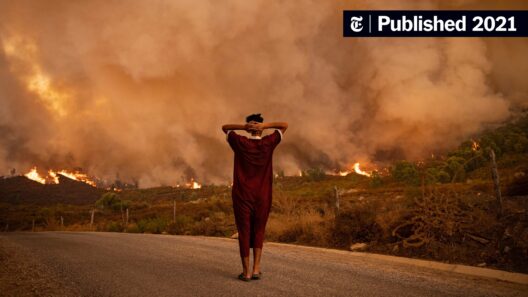Costa Rica, a small Central American nation, occupies a unique geographical space that teems with a plethora of biodiversity and is often heralded as one of the world’s most pristine natural environments. However, this biodiverse sanctuary confronts substantial climate challenges that threaten its ecological integrity, sustainability, and the wellbeing of its inhabitants. The juxtaposition of Costa Rica’s rich biodiversity against the backdrop of a warming world elucidates the urgent need for innovative approaches to conservation and climate action.
First and foremost, it is imperative to understand what constitutes a biodiversity hotspot. According to scientific parameters, a biodiversity hotspot is a biogeographic region with a significant reservoir of biodiversity that is under threat from human activities. Costa Rica qualifies as a biodiversity hotspot due to its astonishing variety of flora and fauna—approximately 5% of the world’s species can be found within its relatively small territory. This remarkable richness has resulted from its unique climate, topographical diversity, and long-standing evolutionary processes. However, the pressing climate issue—global warming—poses a dire threat to these natural wonders.
The ramifications of climate change in Costa Rica are multifaceted. Rising temperatures, shifting rainfall patterns, and increased frequency of extreme weather events have begun to alter the very fabric of its ecosystems. Flora and fauna that once thrived in specific environmental niches are finding their habitats increasingly inhospitable, leading to a phenomenon known as “climate-induced migration.” Species that cannot adapt quickly are facing extinction. For instance, amphibians, which are notably sensitive to temperature fluctuations and moisture levels, are particularly vulnerable to climate change. Multiple amphibian species have already been decimated in the past due to habitat loss, disease, and changing climates, signaling an urgent need for intervention.
In tandem with these biological challenges, the socio-economic dimensions cannot be overlooked. Costa Rica’s economy is heavily reliant on ecotourism—a sector that thrives on the nation’s exceptional biodiversity. The deteriorating environment not only jeopardizes wildlife populations but also economic stability, leading to potential declines in tourism revenue and job losses for communities dependent on this industry. As climate change becomes increasingly acute, it is a harsh reminder that ecological health is inextricably linked to human prosperity.
The Costa Rican government has initiated several commendable policies aimed at mitigating climate challenges and preserving its biodiversity. One notable strategy is the Payment for Environmental Services (PES) program, which incentivizes landowners to engage in sustainable practices that benefit ecological conservation. This program has garnered international acclaim and has showcased how monetary compensation can catalyze a significant shift towards sustainable land management. Implementation of these strategies illustrates a foundational understanding that economic solutions must align with ecological priorities.
Another promising avenue is the reforestation efforts underway in Costa Rica. While deforestation plagued the country in the 1980s, aggressive and concerted reforestation initiatives have seen over 60% of Costa Rica’s territory blanketed in forests once more. These reforested areas not only sequester carbon but also provide habitat for various species, thereby enhancing biodiversity resilience against climate fluctuations. Through such measures, Costa Rica emerges as a beacon of hope that environmental rehabilitation is achievable through collective governance and community engagement.
Moreover, fostering climate education and awareness among the populace is a quintessential aspect of tackling resource management challenges. Environmental education programs have taken root in schools, emphasizing the critical importance of biodiversity and the interconnectedness of ecosystems. As citizens become stewards of the environment, a cultural shift takes place, fostering greater communal responsibility towards ecological well-being. This shift is essential as it engenders a sense of pride and stewardship that can drive grassroots conservation efforts.
Nevertheless, the threats posed by climate change and industrial pressures are ever-present. Costa Rica’s climate challenge extends beyond its borders, as global phenomena such as ocean warming and rising sea levels impact the nation’s coastal ecosystems, influencing marine biodiversity and fisheries. Therefore, international collaboration is paramount in confronting these systemic issues. Allies from across the globe must engage in meaningful partnerships, sharing knowledge and resources to address transnational environmental challenges collaboratively.
Intriguingly, Costa Rica’s approach to climate change could serve as a template for other nations battling similar issues. By prioritizing sustainable development without compromising its natural heritage, Costa Rica demonstrates that it is possible to be a global leader in conservation. The initiation of proactive policies that harmonize economic growth with environmental stewardship is a fusion that begs replication worldwide.
Delving deeper, it becomes clear that the intersection of climate challenges and biodiversity preservation beckons a rethinking of conservation paradigms. It urges societies to transition toward regenerative models that not only protect existing ecosystems but also restore those that have been beaten down by unsustainable practices. The future of Costa Rica’s unique ecosystems rests upon collaboration, innovative thinking, and unwavering commitment to preserving the delicate balance of its natural world.
Ultimately, Costa Rica stands at a crossroads. The threats of climate change loom ominously, yet the fervent dedication to conservation and sustainable practices signals profound hope. As the world grapples with the intricacies of a warming planet, Costa Rica’s endeavors to safeguard its biodiversity serve as a poignant reminder of our planet’s interconnectedness and the imperative of collective action. This small nation’s fight against climate change is not solely a local issue; it resonates globally, an invitation for diverse communities to pivot towards conscious stewardship of our shared Earth.








